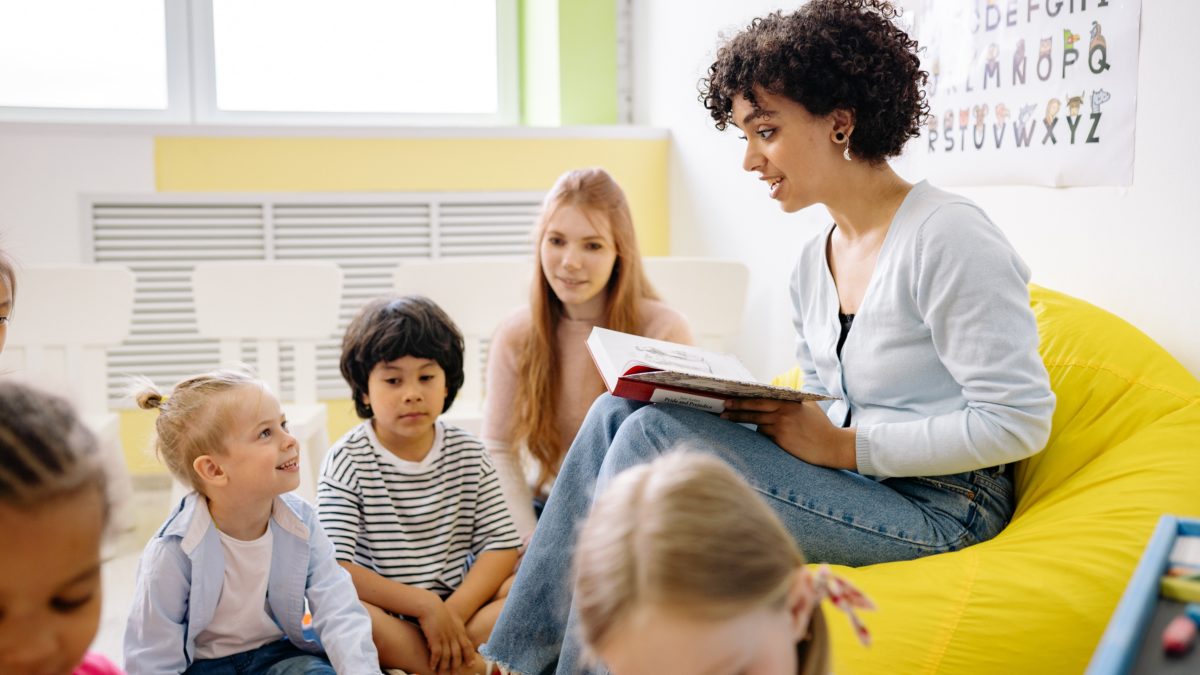COVID-19: Tips for Caregivers Returning to the Classroom

With increasing concern about new variants of the coronavirus, many early childhood educators face pandemic protocols and worries about returning to the classroom this fall. To help you support children and take care of yourself, we’re sharing a few resources.
Help Young Children Understand the Crisis
Young children are particularly vulnerable to the effects of community crises, disasters, and various traumatic events—and studies are showing that the COVID-19 pandemic may serve as an Adverse Childhood Experience (ACE) for some children, leading to long-term consequences for their physical and mental well-being.
Preschool children don’t often have the emotional intelligence yet to fully understand and articulate their feelings. This can easily mislead parents or educators to believe that they are relatively unaffected or even oblivious. But far too often, levels of stress in children are actually underestimated. As you care for children this fall, you can help provide guidance and advice to families on how to identify and remedy any challenges their children may experience in response to the pandemic. Common reactions according to the NAEYC include:
- Sleep problems
- Eating problems
- Sadness, depression, lethargy
- Anxiety, worries, or fear
- Difficulties in concentration
- Somatization
- Regression
Prioritize Your Emotional Resilience
The stress and uncertainty of living through a global pandemic takes an undeniable toll. For young children, their perception of an event is largely influenced by how it impacts their relationships with parents, guardians, or other important caregivers—including you as an early childhood educator!
In preparing for your return back to caregiving, remember that practicing self-care is essential. Supporting children who have experienced trauma and loss can be emotionally exhausting and overwhelming. The empathy and compassion you feel for the children you care for is likely astronomical and may have an enormous impact on your psychological and emotional well-being.
Here are a few tips on incorporating self-care into your routine:
-
- Develop a professional support system. Doing this all by yourself is grueling—but consider tapping into your professional network and leaning on others who are undergoing similar experiences. Opening a powerful dialogue among fellow early childhood educators can be an empowering and healing process for everyone.
- Balance your personal and professional needs. It’s okay to set and maintain boundaries—particularly if you’re facing another season of working from home where the lines of the workday become increasingly blurry. Determine a schedule that incorporates important self-care practices and breaks from work whenever possible.
- Recognize that everyone takes a different approach. As you interact with families and children, recognize that everyone responds to stress differently. Accept and validate your own response to stress and anxiety.
- Seek help if you need it. If you feel overwhelmed by intense and prolonged feelings of hopelessness and anxiety, don’t be afraid to seek professional help. Many mental health providers are currently offering remote sessions by phone or video conference to ensure support is accessible. We also recommend the Hope4Healers Helpline, a new initiative in partnership with the North Carolina Psychological Foundation. It provides mental health and resilience support for child care providers in addition to health care professionals, first responders, and more. The hotline is available 24 hours, 7 days a week.
Additional Resources
We’ve compiled a list of resources to help you support the individualized needs of children in your care. Read more here.
